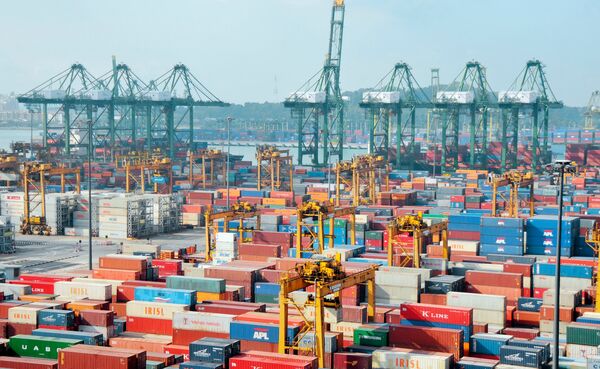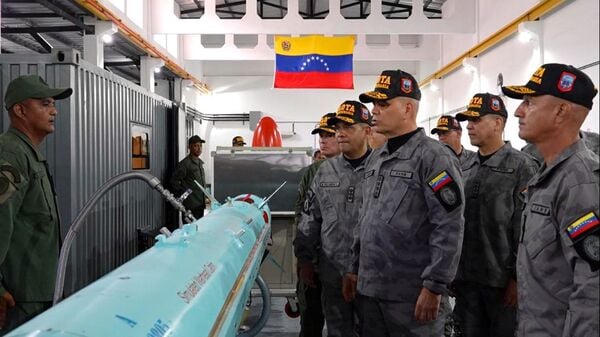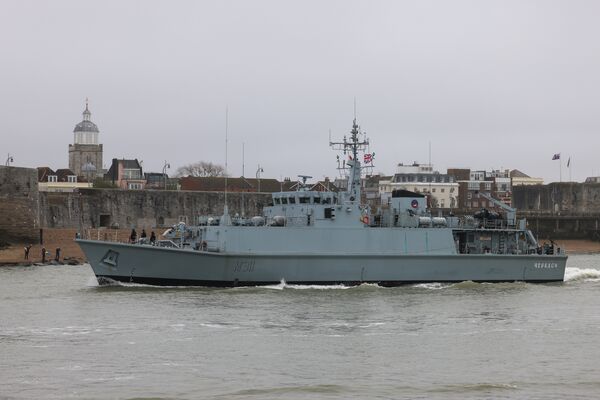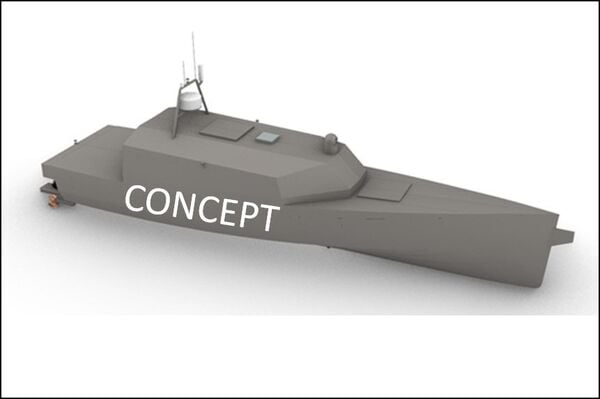- About
- Intara
- Capabilities
- Advisory
- Resources
- News
- Store
Ukraine conflict: Singapore to enact controls on items bound for Russian offensive
01 March 2022
by Ridzwan Rahmat


A view of the Port of Singapore, which has often been ranked as the world's busiest transhipment hub. (Janes/Patrick Allen)
Singapore is moving to enact unilateral controls on the movement of items to Russia that can be used as weapons, in the wake Russia's ongoing offensive in Ukraine.
The city state, which has often been ranked as the world's busiest transhipment port, will be disclosing further details on these controls soon, said Singapore's Minister for Foreign Affairs Vivian Balakrishnan on 28 February in an address to the country's parliament.
In his address, Balakrishnan emphasised that Singapore values the good relations it enjoys with Russia and the Russian people. “However, we cannot accept such violations of sovereignty and territorial integrity of another sovereign state,” he said in reference to the Russian offensive that began in February 2022.
“We will continue to work with our ASEAN and international partners to take a strong stance against the invasion of Ukraine, and to end further violence and bloodshed, and to de-escalate tensions,” he added.
Balakrishnan further explained that Singapore has always complied fully with the sanctions and decisions of the UN Security Council, but has rarely acted unilaterally to impose sanctions on other countries in the absence of binding Security Council decisions or directions.
“However, given the unprecedented gravity of the Russian attack on Ukraine, and the unsurprising veto by Russia of a draft Security Council resolution, Singapore intends to act in concert with many other like-minded countries to impose appropriate sanctions and restrictions against Russia.”
“In particular, we will impose export controls on items that can be used directly as weapons in Ukraine to inflict harm or to subjugate the Ukrainians. We will also block certain Russian banks and financial transactions connected to Russia,” he said, adding that the specifics of these “are being worked out and will be announced shortly”.
Singapore will join at least five other countries across the Asia-Pacific region that have announced their respective intentions to either ban trade with Russia or join in on sanctions announced by the US and the European Union. The countries are Australia, Japan, New Zealand, South Korea, and Taiwan. Similarly, the sanctions include prohibitions on the sale of military and dual-use technologies to Russia.
In response Balakrishnan's disclosure in parliament, the Embassy of Russia in Singapore expressed its regret on the same day and described the unilateral move as one that circumvents the UN Security Council. “We consider it runs against the friendly relations between Russia and Singapore, as well as counter to the need of speedy and peaceful settlement of the situation in Ukraine, which the Russian Federation continuously advocates,” the embassy said.
Venezuela displays Iranian anti-ship missiles
19 April 2024
by Jeremy Binnie


Venezuelan Defence Minister Vladímir Padrino López inspects a CM-90 anti-ship missile. (Ministerio del Poder Popular para la Defensa (Venezuela))
The Venezuelan military confirmed on 16 April that it has the CM-90 export version of Iran's Nasir anti-ship missile (ASM).
Defence Minister Vladímir Padrino López inaugurated what a defence ministry statement described as a workshop for the CM-90 at Base Naval CA Agustín Armario in Puerto Cabello as part of the Bolivarian Navy of Venezuela's (ABV's) anniversary celebrations on that day. It released photographs and a video of Padrino inspecting several ASMs and associated containerised testing equipment inside a building.
The Nasir was developed from the Nasr missile, which is Iran's version of the Chinese C704, with the solid-propellant motor replaced by a turbojet engine and a launch booster. Iranian export documentation says this makes the CM-90 88 cm longer than the CM-35, the export version of the Nasr, and increases its range from 35 to 90 km.
Ukrainian ex-Royal Navy minehunters to be temporarily based in Portsmouth
19 April 2024
by Kate Tringham


Cherkasy, one of the Ukrainian Navy's two newly acquired ex-Royal Navy Sandown-class MCMVs, is pictured entering Portsmouth Harbour on 11 April ahead of a series of multinational naval exercises. (Crown copyright)
The Ukrainian Navy's two newly acquired ex-Royal Navy (RN) Sandown-class mine-countermeasures vessels (MCMVs) have been temporarily homeported at Portsmouth Naval Base, the RN has confirmed.
The two minehunters, Chernihiv (ex-HMS Grimsby ) and Cherkasy (ex-HMS Shoreham ), arrived at Portsmouth Naval Base on 11 April ahead of a series of multinational exercises.
Previously based in Scotland, the ships will operate from Portsmouth “for the foreseeable future”, the RN said. While stationed in Portsmouth, they will engage in exercises with the RN and the US Navy (USN) in UK waters, helping the Ukrainian Navy to adapt to NATO operations.
Chernihiv and Cherkasy, which were recommissioned into Ukrainian Navy service in July 2023, were donated by the UK to Ukraine as part of the Ukraine Naval Capabilities Enhancement Programme (UNCEP). Ahead of their transfer from the RN, they were overhauled by Babcock at its facilities in Rosyth, Scotland.
Netherlands MoD and Dutch Naval Design team to collaborate on USV development
19 April 2024
by Kate Tringham


The USV concept. (Dutch MoD)
The Netherlands Ministry of Defence (MoD) and Dutch Naval Design (DND) have joined forces to develop an unmanned surface vessel (USV).
Announcing the partnership on 12 April, the MoD said the USV will be designed for deployment from the future anti-submarine warfare frigates (ASWFs) currently under development.
Under the terms of the contract, signed on 10 April, the USV is planned to be completed in around four years, the MoD said. The 12 m long vessel will be “technologically very advanced, sustainable, autonomous, and operationally flexible”, it added.
The Belgian and Dutch navies are procuring two ships each to replace their respective Karel Doorman (M)-class frigates under the ASWF programme. The ships are being designed and built by Damen under a contract awarded by the Dutch Materiel and IT Command (COMMIT) in June 2023. Under the terms of the contract, the first frigate will be delivered to COMMIT in 2028 and handed over to the Dutch navy in 2029, while the Belgian Navy will receive its first ship in 2030.
Singapore is moving to enact unilateral controls on the movement of items to Russia that can be used...
Latest Podcasts
Iran Israel analysis
In this podcast Janes analysts discuss the Iranian attacks on Israel on the 14 April. They highlight the military systems used by Iran and the performance and impact of these on Israel. They also discuss the implications of this attack goi...
Listen nowJanes Case Studies
Using Janes Intara to build a common intelligence picture: Russian build up on the Ukrainian border
View Case StudyNews Categories
 Security Details
Security Details